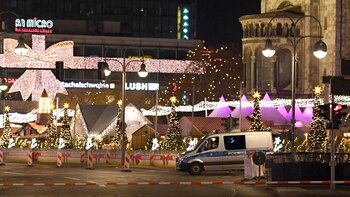(Bloomberg) -- Walt Disney Co. is used to managing large crowds in tight places. In Florida, the theme-park giant is also figuring out how to handle guests who test positive for Covid-19: quarantining some at the company’s Fort Wilderness Resort.
Such cases have been extremely rare, Disney said. But tourists who have the misfortune of testing positive for the coronavirus while vacationing at Walt Disney World may be moved to the 750-acre site, where they can be isolated from other visitors.
The property, styled like a frontier campground, includes stand-alone cabins that don’t share ventilation systems. Guests can park their cars right in front of their accommodations. Travelers with the virus may also be quarantined at other empty hotels that haven’t reopened to the general public. They -- and their entire party -- are barred from entering the theme parks.
While many states are discouraging travel during the current winter surge in Covid-19 cases -- and airplanes have been the focus of recent incidents involving sick travelers -- there’s been little discussion of the dilemma hotels face when guests test positive. Some people may be able to drive home and quarantine there. Others are stuck in limbo, with air travel out of the question.
Hotel managers are encouraged to isolate infected guests as best they can, according to Pete Hillan, a spokesman for the California Hotel & Lodging Association. Services such as housekeeping may be limited until they leave. Hotel operators are also encouraged to report cases to local officials.
“The county may make a decision on where they should be,” Hillan said.
Some cities and counties have gone so far as to buy hotels or contract out for rooms so people with the virus can stay in isolation. Los Angeles, for example, has some 470 sick or at-risk people sheltering in seven locations throughout the county.
Marriott, Hilton
Marriott International Inc. and Hilton Worldwide Holdings Inc., two of the largest hotel operators, rely on advice from local health officials when a guest tests positive. The chains also implement enhanced cleaning techniques and other steps to protect staff and travelers, such as delivering food and dropping linens off at the door. Hilton typically won’t rebook a room for at least 48 hours after a guest with the virus leaves. Marriott says it changes the air conditioning filters.
Unlike California, Florida has no travel restrictions in place. Non-Florida residents accounted for less than 2% of the more than 1.3 million Covid-19 cases reported, according to the state’s health department.
Disney reopened its Florida theme parks in July. Chief Executive Officer Bob Chapek said in November the parks were operating at about 35% of capacity. Guests submit to temperature checks at the gates and are required to wear masks. The company also has made hand-washing stations plentiful.
Websites such as the Disney Food Blog have weighed in on what guest should do if they feel sick. InsidetheMagic.net recommends getting tested at a local urgent-care facility. The state has also opened a testing center nearby.
Seek Talks
InsidetheMagic also suggests negotiating with Disney, which may let guests reschedule their theme-park visits. A Disney World vacation for a typical family of four costs thousands of dollars. The company says it will work with customers whose trips are interrupted by Covid-19.
Len Testa, president of TouringPlans.com, which helps park visitors find the best days to go, heard that Disney employees are informally referring to sick guests as a “code 23-19,” the term for an emergency in the 2001 Disney film “Monsters Inc.” when a human object inadvertently gets into the world of Monstropolis.
The Fort Wilderness Resort, opened in 1971, is a dog-friendly facility that in non-Covid times features old-timey shows such as the “Hoop-Dee-Doo” musical review. Nowadays, Disney has taken steps such as wrapping shampoo containers and even the TV remote control in plastic to let guests know they’ve been cleaned since the last visitors.
Últimas Noticias
Debanhi Escobar: they secured the motel where she was found lifeless in a cistern

The oldest person in the world died at the age of 119

Macabre find in CDMX: they left a body bagged and tied in a taxi
The eagles of America will face Manchester City in a duel of legends. Here are the details

Why is it good to bring dogs out to know the world when they are puppies




